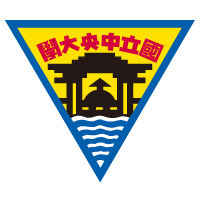Hydrogen Storage Lab
Research Field
Professor Sammy Chan is presently a professor at the National Central University (NCU), Taiwan. Prof Chan started his career in Materials Engineering in England, where he received an Honours BSc(Eng) degree in Metallurgy from Imperial College, and a PhD from the University of Cambridge. He held professorial positions at different universities, including National Taiwan University in Taiwan and University of New South Wales in Australia. Chan’s expertise lies in the areas of materials design, energy materials, corrosion engineering and materials failure analysis. He publishes extensively in these areas and has authored and co-authored over 150 papers in international journals and conferences, and several book chapters on energy materials.
Our research laboratory is working on hydrogen storage materials. We have enough facilities to work on all aspects of hydrogen storage. such as a high pressure (200bar) high temperature (600oC) PCI system, a microbalance system with in-situ hydrogen charging up to 70 bar, high energy ultrasonic machine, vacuum furnaces, ovens etc.
- Energy materials
- Hydrogen storage materials
- Battery technology
- Carbonaceous nanomaterials
- Fellow, Materials Research Society, Taiwan
- Fellow, Institute of Materials, Minerals and Mining, UK
- Fellow, Australian Institute of Energy
- Chartered Engineer, UK
- Chartered Scientist, UK
- Co-editor-in-chief, “Materials Chemistry and Physics”
- Among the top 2% of the Stanford University World’s Ranking of all researchers (2021 and Career).
PhD, University of Cambridge, England
BSc (Eng) Imperial College, England
2 Vacancies
Job Description
Working together with the research group to study the hydrogen storage properties of different types of materials.
Preferred Intern Education Level
Postgraduates with a background in materials science or engineering
Skill sets or Qualities
Some knowledge on energy materials.
High level of materials characterisation skills, including, but not limited to XRD, TEM, SEM, BET, DSC, DTA.
